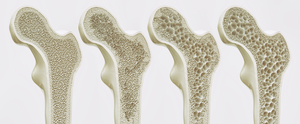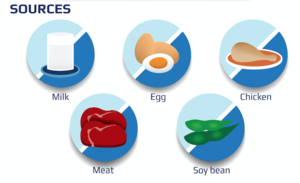Nutrition fads come and go, the tenants of basic nutrition, however, those remain long after the dust of the latest fad diet has settled.
In recent years, a renewed focus on science-based nutrition has captivated consumer audiences. Everyone from gym rats and powerlifters, to stay at home moms and college students are hopping on the science-based bandwagon, and that’s a good thing. While there’s much we still don’t know about nutrition and the ways in which different foods and nutrients work in the body, there’s much that we do know, thanks to decades of scientific research.
If you’re tired of fad diets but want to learn more about the basic units of energy that give us life, you’ve probably sought out information on macronutrients and micronutrients. If you’re feeling up to snuff on carbohydrates, protein, and fats, and if you know your way around the world of vitamins and minerals, amino acids may be your next destination in self-education.
What is Lysine: An Essential Amino Acid?
Proteins are complex molecules that serve crucial functions in structure, growth, immunity, and signaling. The regulation of the body’s organ and tissues systems depend on protein, as nearly every cell in the human body has a protein component. Large proteins are made up of many smaller units known as amino acids, a process known as protein synthesis.
L-Lysine (or, simply Lysine, as it is more commonly referred to), is one of nine essential amino acids. Lysine is an essential amino acid that the body cannot produce on its own and must be obtained through diet or supplements. Amino acids are, quite simply, the building blocks for protein. There are 20 amino acids that are necessary for optimal human health and metabolic function, nine of which must be consumed through diet, as the body is unable to synthesize them on its own. Lysine supplements are often taken alongside other amino acids like arginine.
Lysine, one of the nine essential amino acids, is responsible for a number of important metabolic processes. Amino acid l-lysine is essential for the production of collagen, energy production, calcium absorption, and antiviral activities.

L-Lysine benefits
The health benefits of lysine are numerous and varied, supporting connective tissue, collagen production, gum and skin health, and potentially affecting blood pressure, diabetes, and cancer cell growth.
Given Lysine’s categorization as an essential amino acid, Lysine plays a key role in a number of important physiological pathways. Consuming adequate lysine may act to reduce the risk for certain diseases, and aids in the processes necessary for normal, healthy metabolism. Additionally, lysine supports immune function.
Helps treat herpes
Studies have shown that Lysine can help prevent and shorten the duration of herpes simplex virus (HSV) outbreaks. HSV outbreaks are characterized by sores that are red, raised, painful, oozing, or blistered. These sores (also commonly referred to as herpes lesions) may occur around the mouth, nose, genital herpes, or anus.
Approximately 60 percent of adults carry the HSV1 virus, primarily through childhood infections obtained during food sharing or other poor hygiene habits that present during childhood.
Theoretically, Lysine helps to prevent herpes outbreaks by counteracting arginine. Arginine is an amino acid required for the replication of the herpes virus; Lysine interferes with its absorption in the intestine.
A double-blind, placebo-controlled study found that supplementation with L-lysine monohydrochloride experienced a reduction in the severity and duration of symptoms. Healing time was substantially faster in patients receiving L-lysine supplements compared with those receiving a placebo.
Untreated HSV outbreaks may see lesions endure for as long as 21 days.
A pilot study examining the efficacy of L-lysine supplementation in the treatment of facial and circumoral HSV outbreaks found that supplementation reduced tingling, burning, itching, soreness, swelling, blistering, and crusting of lesions. In 40 percent of patients, symptoms were fully resolved within three days of beginning treatment and 87 percent of patients experienced full symptom resolution within six days.
Helps form collagen
Collagen is the most abundant protein in the human body. Working alongside amino acid proline and vitamin C, Lysine plays a crucial role in collagen synthesis. Collagen forms connective tissues that comprise cartilage, skin, teeth, gums, bones, and ligaments. Collagen is also important in the structure of blood vessels
Given the enormous number of tissues that require collagen for strength and stability, adequate Lysine is incredibly important for the rebuilding processes that occur as a result of normal living, metabolism, and exercise.
Helps block the spread of metastases
Cancer is a life-changing diagnosis, to say the least. Each year, there are more than 1,700,000 new cases of cancer diagnosed in the United States, leading to over 609,000 deaths. While cancer affects all groups at all ages, mortality rates are significantly higher for men than women. The most common types of cancer diagnosed in men are cancers of the prostate, colon, rectum, and lungs. Approximately 38.4 percent of men will be diagnosed with cancer in their lifetime.
Given the overwhelming incidence of cancer (of which there are more than 100 types) discovering the causes of — not to mention an effective plan for prevention and treatment — is crucial. Unfortunately, research has been shockingly slow in this area, with researchers still confounded as to the exact causes of cancer, much less adequate and effective treatments.
Survival rates are highly variable depending on cancer type and degree of metastases. Metastases refer to the degree of cancer proliferation into other tissues. A higher degree of metastases (meaning that cancer has spread far from its site of origin) indicates a less optimistic chance of survival. While research in cancer is far spread, spanning from cause to prevention to cure, a large portion of research is dedicated to preventing or reducing genetic changes and abnormal cell growth that serve as a primary characteristic of cancer.
Genotoxicity is a term used to refer to genetic changes that occur in response to chemical agents. It is theorized that these genetic alterations increase the risk for certain types of cancer, or are responsible for setting the disease in motion. In animal models, Lysine has been shown to protect against genotoxicity, acting as a shield against the genetic alterations that may increase cancer risk.
Additionally, both in vitro and in vivo studies have shown that Lysine may elicit anticancer properties by acting as a cytotoxin on tumor cells, diminishing their growth and proliferation into other tissues.
Helps prevent osteoporosis

While we often focus on the importance of calcium and vitamin D consumption as young children, little thought is given to bone health later in life. Osteoporosis and Osteopenia are two common conditions characterized by low bone density.
Osteopenia serves as the first stage of Osteoporosis, with bone density that is lower than normal, yet not low enough to be considered full-blown Osteoporosis. Although Osteoporosis is more common in women than men, it affects both genders, with 27 percent of men experiencing an osteoporotic fracture in their lifetime.
Lysine may help prevent Osteopenia and Osteoporosis by increasing calcium absorption, which is crucial for bone health. Studies indicate that dietary lysine can help the body absorb calcium. Calcium and vitamin D are essential for the development and maintenance of healthy bone tissue. Given that Lysine acts to promote calcium absorption, consuming adequate Lysine may help reduce the risk of low bone turnover that ultimately leads to Osteopenia and Osteoporosis.
Helps slow the aging process
While there are multiple side effects that come as a natural part of the aging process, erectile dysfunction, low muscle tone, and low bone density are among the most common. Lysine has been shown to increase calcium absorption, potentially improving bone formation and regeneration. Additionally, Lysine plays a crucial role in the production of a collagen, a protein that comprises approximately 30 percent of bone tissues.
Collagen is also a key component of muscle tissue, acting to reduce age-related muscle loss (commonly known as Sarcopenia). Sarcopenia affects both men and women, with individuals who are less active especially prone to age-related muscle loss. Sarcopenia is associated with a lower function in activities of daily living, as well as an increased risk of falls, fracture, and early death.
Given the importance of maintaining muscle mass throughout the aging process, consumption of protein in the form of whole foods (including those containing Lysine) can help defend against age-related muscle loss. While bone and muscle loss tend to affect both sexes, erectile dysfunction is a condition concerning to men in the aging process.
The inability to get or maintain an erection can be of great emotional distress to men as they age. Theoretically, lysine supplementation may help reduce symptoms of erectile dysfunction, which presents in approximately 40 percent of men by age 40.
While no studies have shown that Lysine supplementation directly treats erectile dysfunction, many scientists theorize that Lysine’s role in the reduction of LDL Cholesterol may reduce the arterial plaques and reduction in blood flow that predict the presence of erectile dysfunction in men.
Reduces anxiety
While fear, stress, and anxiety are normal parts of life, they can curtail into a more vicious form of toxic, debilitating anxiety that presents as a significant and severe mental health condition. Rather than a moment, day, or period of anxiety, anxiety becomes chronic, acting as a profound barrier to socialization, work, and general health and happiness.
An estimated 19.1 percent of Americans are diagnosed with anxiety disorders each year, with 14.3 percent being men. Many more are undiagnosed, with estimates suggesting that 31 percent of adults will experience profound and chronic anxiety at some point in their lifetime.
Studies have shown that Lysine may act in an area of the brain known as the central amygdala, altering levels of serotonin that are believed to play a role in anxiety and the severity of anxiety-related symptoms. Lysine has shown to be particularly beneficial in the reduction of gastrointestinal manifestations of anxiety, including IBS-like symptoms such as chronic diarrhea and bowel urgency.
Reduces diabetes complications

Each year, diabetes complications kill more Americans than AIDS and breast cancer combined and 1 in 3 adults has prediabetes, many of whom are undiagnosed. Diabetes is a condition in which the body is unable to adequately control blood sugar. This may occur thanks to genetics, or diet and lifestyle factors.
Type I Diabetes presents as an autoimmune condition, in which the islet cells of the pancreas are mistakenly attacked by the immune system. In turn, this diminishes the pancreas’ ability to produce the hormone insulin.
Type II Diabetes (the most common type of Diabetes) is caused by diet and lifestyle factors, including weight, activity, and nutritional consumption. Type II Diabetes is also more common with age. Prediabetes serves as the first indicator for Type II Diabetes.
Prediabetes is a condition in which blood sugar levels are elevated, yet not high enough to cause a diagnosis of Type II Diabetes. In the absence of lifestyle changes, Prediabetes almost always progress to Type II Diabetes. Prediabetes is considered to be a crucial window in preventing full-blown diabetes. The ability to control blood sugar during this time largely predicts the ability to prevent progression into Type II Diabetes.
Studies have shown that Lysine may decrease fasting blood glucose (or, as it is more commonly referred to, fasting blood sugar) increasing concentrations of pancreatic hormones insulin and glucagon.
Given the serious nature of diabetes and the complexity of treatment, it’s crucial that any medication or supplementation regimen is discussed with a physician or diabetes care team. Care regimens for diabetes are incredibly individual and largely variable depending on the severity of the disease and current function of the pancreas.
Reduces pancreas inflammation
Pancreatic inflammation (or, clinically, Pancreatitis) is characterized by inflammation of the pancreas, an organ responsible for the secretion of digestive enzymes, as well as the crucial production and secretion of hormones insulin and glucagon.
Damage to the pancreas may occur when digestive enzymes are activated before they are released into the small intestine, where they attack the pancreas. Pancreatitis may be either acute or chronic, with acute pancreatitis most commonly caused by a viral infection or drug interaction.
In an animal study, supplementation with the amino acids Arginine and Lysine led to statistically significant reductions in malondialdehyde and nitric oxide, which serve as important biomarkers of oxidative stress. Additionally, supplementation significantly increased antioxidant activity, which led to reductions in inflammatory cytokines.
While supplementation did lead to reductions in inflammation, researchers noted that supplementation was even more effective as a preventive tool than a therapeutic agent in treatment.
Improves the function of the heart

Cholesterol exists in two forms: LDL (“bad” cholesterol) and HDL (“good” cholesterol). LDL cholesterol plays a significant role in the development of atherosclerosis, a condition in which cholesterol plaques build up in the arteries supplying blood to the body.
This leads to a gradual narrowing of the artery, resulting in increased blood pressure, increasing the risk of heart attacks and stroke.
Lysine aids in the production of carnitine, improving the utility of LDL Cholesterol. When consumed in conjunction with vitamin C, Lysine reduces concentrations of lipoprotein-a, which acts as a carrier of LDL cholesterol.
The reduction of lipoprotein-a may reduce the amount of plaque that accumulates in arteries, reducing the risk of heart attack, stroke, and other vascular conditions, including erectile dysfunction.
L-Lysine deficiency issues
Lysine deficiency is fairly rare in modernized countries, as consumption of animal proteins tends to be plentiful (Lysine is most abundant in animal-based foods). However, manifestations of lysine deficiency do present in individuals with increased nutritional needs, those with malabsorptive conditions, and those living in third world countries.
While rare, lysine deficiency may cause anemia, changes in mood or behavior, fatigue, hair loss, inability to focus, and nausea or dizziness.
How to increase L-Lysine intake?
Lysine can be consumed in either food or supplement form. Ensuring you get enough lysine is crucial, especially through a varied diet that includes both animal and plant sources of protein. The degree of consumption or supplementation necessary for any one individual is highly variable depending on age, gender, activity level, and disease status. Lysine supplements are often available in combination with other amino acids, which can enhance their effectiveness.
However, general recommendations are as follows:
Infants <2 years of age: 103 mg/kg/day
Toddlers >2 years of age: 64 mg/kg/day
Children: 58 mg/kg/day
Adults: 30-35 mg/kg/day
Discuss your individual consumption with a doctor or registered dietitian, especially if you consume a low protein diet or a vegan or vegetarian diet, as Lysine is most plentiful in animal-based proteins.
Recommended foods

While lysine is present in a number of common foods, it is most plentiful in animal proteins.
For this reason, it’s essential that vegan, vegetarians, and other plant-based eaters focus on consuming the available plant-based sources of lysine, as the body is unable to manufacture it on its own. This may be especially problematic for plant-based eaters who shy away from eggs, beans, and seeds, as these are the most common vegetarian/vegan sources of lysine.
The 10 foods highest in lysine are as follows: Lean beef, poultry, parmesan cheese, pork, tuna, shrimp, soybeans, pumpkin seeds, eggs, and beans.
Increasing lysine consumption by focusing on these foods is by far the best option for most consumers, as the absorption and utilization of whole foods are often superior to that of supplements. Dietary lysine has been shown to help the body absorb calcium, which is important for bone health and may help prevent bone loss, particularly in relation to osteoporosis.
Scientists theorize that there are important cofactors in whole foods that have not yet been identified. These cofactors may enhance absorption or improve the utility of lysine in the body. Until research validates the notion that any given supplement is superior to consumption in the form of whole foods, always opt for whole food sources of nutrition.
Sample Day, High Lysine Diet:
Breakfast: 2 eggs, 1 apple (High Lysine Food: Eggs)
Snack: Yogurt with pumpkin seeds (High Lysine Food: Pumpkin Seeds)
Lunch: Salad with 5 oz grilled chicken, 2 tbsp parmesan cheese, 2 tbsp balsamic vinaigrette (High Lysine Foods: Chicken, Parmesan Cheese)
Dinner: 4 oz Grilled Shrimp with ½ cup Black Beans (High Lysine Foods: Shrimp, Black Beans)
Lysine supplements
For those with medical conditions affecting nutrient absorption, or those with certain disease states or advanced nutritional needs, taking lysine supplements may be helpful. Lysine supplements are often combined with other amino acids like arginine to enhance their benefits. However, dietary sources of lysine are more than sufficient for most consumers and should always be consumed prior to considering a supplement regimen.
Supplements are not currently regulated by the Food and Drug Administration (FDA), as they are considered to be neither food nor drug. As such, nutritional supplements often contain unspecified ingredients that may be harmful. Even in the absence of unspecified ingredients, many supplements do not contain the dosage stated on the packaging.
Always discuss supplementation with your physician, as supplements may cause adverse reactions in certain individuals, especially those taking medications, those who are pregnant, or those with nutritional conditions affecting intestinal absorption. It is important to avoid taking lysine supplements unless prescribed by a healthcare provider, particularly for individuals with heart disease, kidney disease, liver disease, gallstones, asthma, or lysinuric protein intolerance.
Lysine: Important considerations
Lysine is an important component of a nutritionally adequate diet.
Given lysine’s classification as an essential amino acid, it’s vital that lysine is consumed via diet, as it cannot be synthesized in the body from other substrates. Lysine is required for healthy metabolism, growth and repair, and immune function. Additionally, lysine plays a crucial role in maintaining muscle mass.
Although most adults and children living in modernized countries consume sufficient lysine, certain individuals may be at a larger risk for lysine deficiency. Before taking lysine supplements, it is crucial to consult with a healthcare provider to check for potential drug interactions and consider the risk of severe side effects, such as kidney failure. Appropriate dosage and safe, effective dosing should also be determined with professional advice. Given the essentiality of this amino acid, it’s likely that future research will uncover additional means in which lysine acts to promote general health and prevent disease.
Recommended Articles For You
Glutathione: The ins, outs, and benefits of this antioxidant
